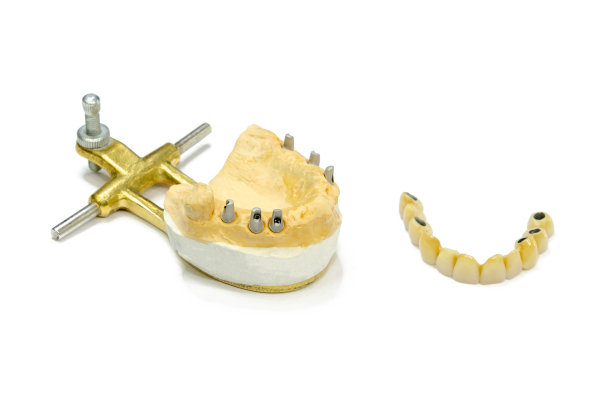Revolutionizing Oral Health A Comprehensive Guide to Understanding Dental Implants and Their Benefits for Your Smile
Summary: In this comprehensive guide, we explore the transformative power of dental implants in modern oral health. Understanding how dental implants work and their numerous benefits can significantly improve your quality of life and self-esteem. This article delves into the functionality of dental implants, their advantages over traditional dentures, the procedure involved, and the long-term care required post-implantation. By the end of this guide, you will have a thorough appreciation of how dental implants can revolutionize your smile and oral health.
1. Understanding How Dental Implants Function

Dental implants are artificial tooth roots made of biocompatible materials that are surgically placed into the jawbone to support replacement teeth. This innovative solution mimics the natural root structure, providing a stable foundation for artificial teeth. The implant integrates with the bone through a process known as osseointegration, ensuring long-lasting stability and durability.
The actual procedure for placing dental implants involves several steps, including a comprehensive evaluation, implant placement, and attaching the crown. First, a dentist evaluates the patient’s oral health, including x-rays and 3D imaging, to ensure there’s enough bone density to support the implant. Once the implant is placed, a healing period follows for the jawbone to fuse with the implant.
Understanding this biological process allows patients to appreciate the effectiveness of dental implants. They function like natural teeth, allowing individuals to enjoy various foods without worrying about their prosthetic teeth shifting or becoming dislodged. This technology restores not only functionality but significantly enhances the patient’s confidence in their smile.
2. Benefits Over Traditional Dentures
One of the most notable advantages of dental implants over traditional dentures is their stability. Unlike removable dentures, which can slip or cause sore spots in the mouth, dental implants are anchored securely in the jawbone. This stability allows for greater comfort and the ability to eat a wider range of foods without restrictions.
Additionally, dental implants provide a more natural appearance than dentures. The implants are designed to resemble natural teeth closely, and since they integrate with the bone, they can help maintain the structure of the face. This prevents the sunken facial appearance that often accompanies long-term denture use.
Moreover, dental implants require no special cleaning routines. With diligent oral hygiene practices, dental implants can last a lifetime, whereas traditional dentures require regular replacements and careful cleaning to avoid stains and odors. Thus, implants represent a more convenient alternative for maintaining one’s oral health.
3. The Procedure of Getting Dental Implants
The dental implant process typically begins with a consultation and thorough examination. This stage is crucial for assessing the patients overall dental health and determining the best course of action. The dentist might suggest bone grafting if there’s insufficient bone density to place the implants.
After preparing the jaw, the next step is the surgical placement of the implant. During this outpatient procedure, a small incision is made in the gum to access the bone, where the implant is inserted. Once the implant is in place, a healing period of several months is necessary to ensure the implant bonds with the bone completely.
Lastly, once the initial healing is accomplished, an abutment is placed on top of the implant, followed by the custom-made dental crown. This final part of the procedure restores the appearance of the tooth and completes the dental implant placement process, allowing patients to leave with a functional and beautiful smile.
4. Long-Term Care for Your Implants
Proper long-term care is essential in ensuring the longevity of dental implants. While implants are resistant to decay, maintaining a regular oral hygiene routine is crucial. This includes brushing twice daily, flossing daily, and attending regular dental check-ups to monitor the condition of the implants.
Another important aspect of care involves avoiding detrimental habits, such as chewing on hard objects, grinding teeth, or using tobacco products, as these can jeopardize the integrity of the implants. Education on these risks is vital for ensuring the success of the dental implant.
Moreover, understanding how dietary choices impact oral health is essential. Consuming a balanced diet rich in vitamins and minerals supports both your natural teeth and implants, promoting overall oral health. Patients should stay informed about their dental health and address any concerns with their dental professionals promptly.
In conclusion, dental implants represent a significant advancement in the field of oral health, offering a variety of benefits that enhance both function and aesthetics. The comprehensive understanding of their operation, advantages over traditional dentures, procedural elements, and long-term care strategies allows individuals to make informed choices regarding their dental health. By opting for dental implants, you are not just choosing to improve your smile; you are also investing in your confidence and quality of life.
This article is compiled by Vickong Dental and the content is for reference only.


